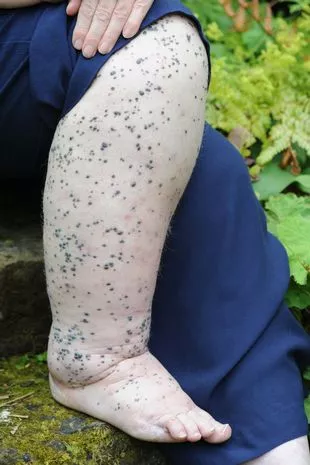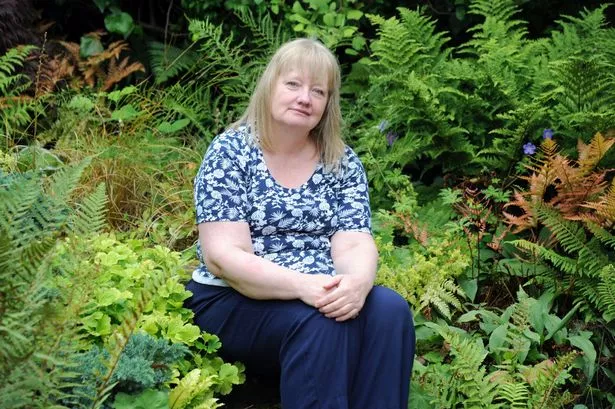But Dianne Ralph has been told the medicine is only effective for a limited period of time and scientists are now trying to work out how to prolong its healing powers
A skin cancer sufferer who had to have her toe amputated due to the disease has been given a new lease of life thanks to a wonder drug.
However, Dianne Ralph has been told the drug is only effective for a limited amount of time, and scientists are now trying to work out how to prolong its healing powers.
Brave Dianne, 59, from Skelmersdale, West Lancs, was told she had nothing more than a bruised toe, but the mark on her foot turned out to be advanced skin cancer.
Dianne’s little toe was amputated and she had to have lymph nodes surgically removed from the top of her leg as well, reports the Liverpool Echo.
But the surgery failed to halt the cancer and toxic skin growths continued to appear.

Ordeal: Dianne had to have her toe amputated after doctors mistook melanoma for a fracture (Image: Liverpool Echo)
Dianne was given a new lease of life after being prescribed a pioneering drug called vemurafenib, but this medicine is only effective for a limited period of time.
Scientists from the University of Liverpool are now carrying out a major research project to work out how to prolong the drug’s healing effects.
Dianne said: “Being diagnosed with skin cancer was one of the hardest moments in my life, but despite my treatment problems, I have been incredibly lucky to be diagnosed when I was.
“Treatment has been a long and rocky road – as fast as the cancer in my leg was being removed, it was returning again.
“It just felt like there was no way of stopping this incredibly exhausting, never-ending cycle.
“Vemurafenib has been the only treatment which has made a significant impact and, since I started taking the tablets, the cancer has yet to return.
“The side-effects can be pretty tiresome though and I have had to come off them a few times to allow my body to recover and regather my strength.”

Spread: Surgery failed to halt the cancer and toxic skin growths continued to appear (Image: Liverpool Echo)
Dianne added: “Thanks to the tablets I have been able to live a longer life than I would have without them, but my doctors have explained to me that the drugs won’t be this effective forever – at some point the skin cancer will return and it will not be treatable.”
But the University of Liverpool scientists – backed by funding from North West Cancer Research (NWCR) – believe the drug’s cancer-killing effects can be extended.
Dr Michael Cross, one of the scientists leading the research project, said: “The development of the drug vemurafenib has allowed a significant breakthrough in treatment, with 60% of patients witnessing tumour regression, including rapid shrinkage just days into the treatment.
“However, patients develop resistance to the drug, causing the tumour to grow and spread again.
“With the support of NWCR, we hope to look at ways to minimise this lethal drug resistance to vemurafenib.”

Anxious wait: Scientists are trying to work out how to prolong the drug’s healing effects (Image: Liverpool Echo
Malignant melanoma is the fifth most common cancer in the UK, with 13,000 cases diagnosed every year – including 1,416 in the North West and 295 in Merseyside.
Anne Jackson, chief executive of NWCR, said: “As an organisation we are delighted that we are now able to fund research such as this, which will potentially directly benefit people living in the region.
“None of this can be done without the support of our fundraising committees which operate right across the North West.
“All of our research fellows recognise the hard work which is being generated by our volunteers, helping to keep this vital research work in the region, which is why every penny we raise is so important.”
Source: https://www.mirror.co.uk/news/uk-news/skin-cancer-patient-who-lost-6226759


